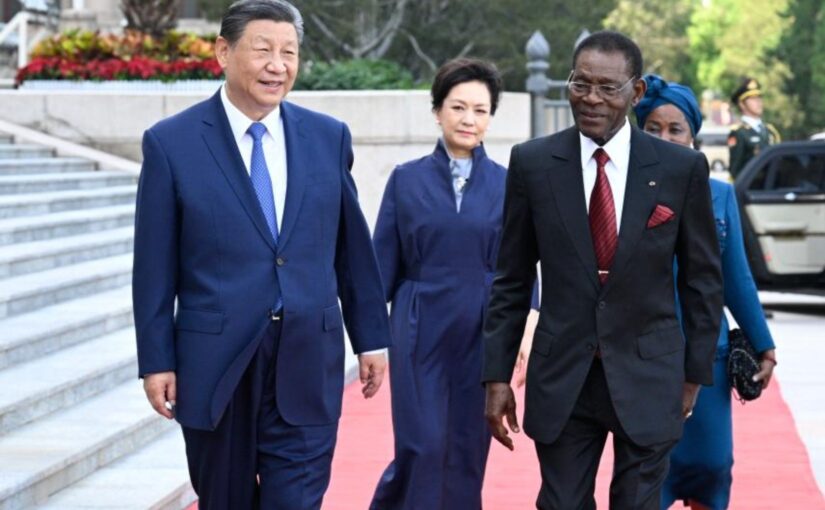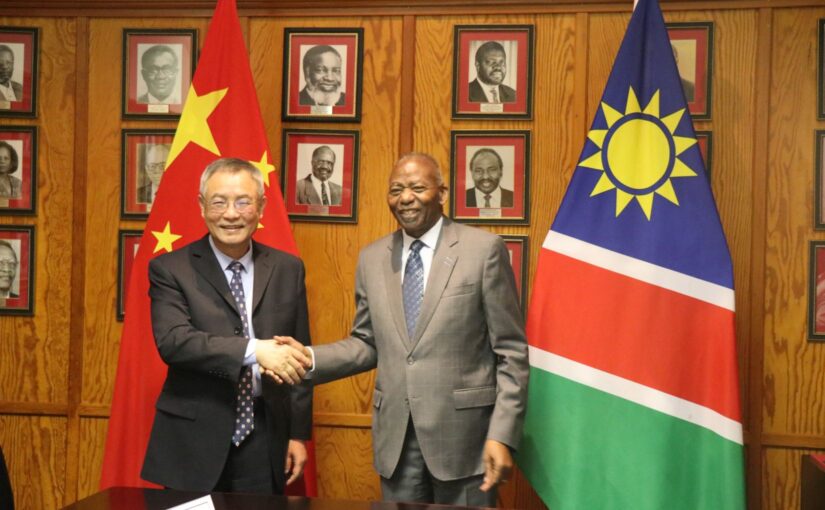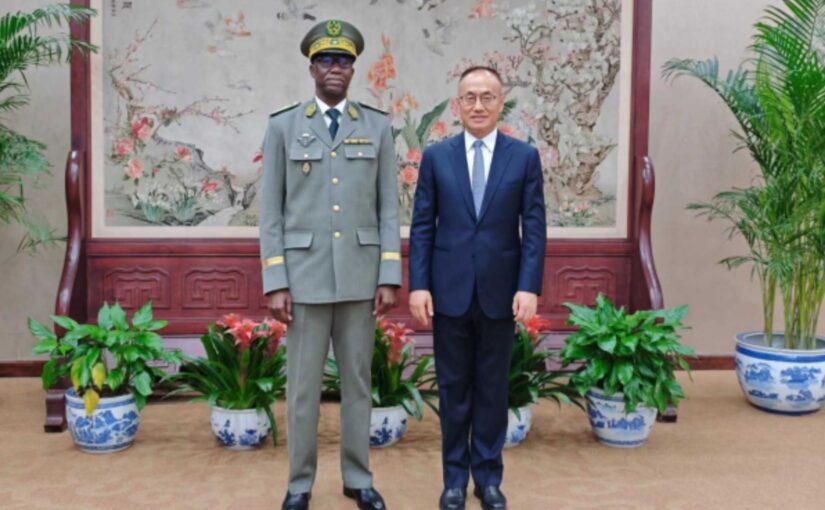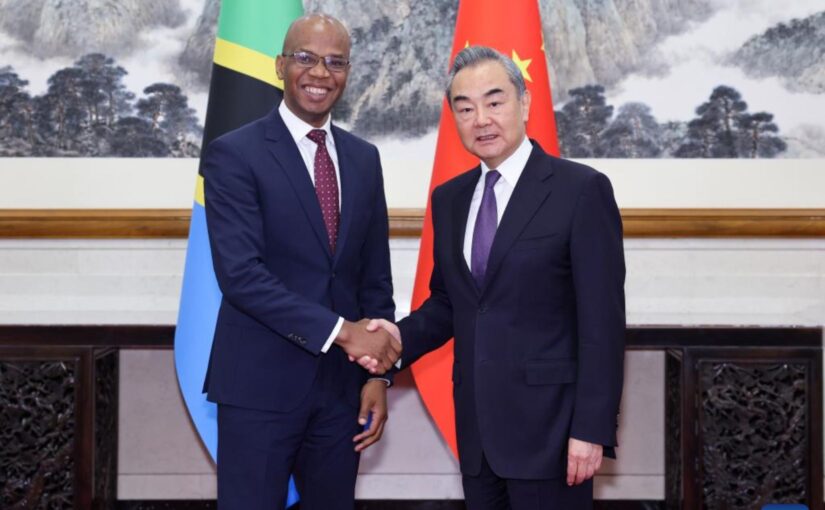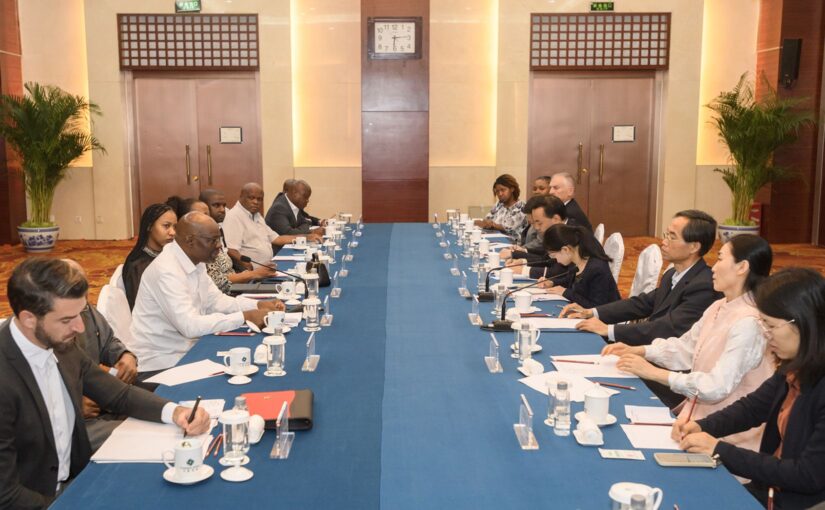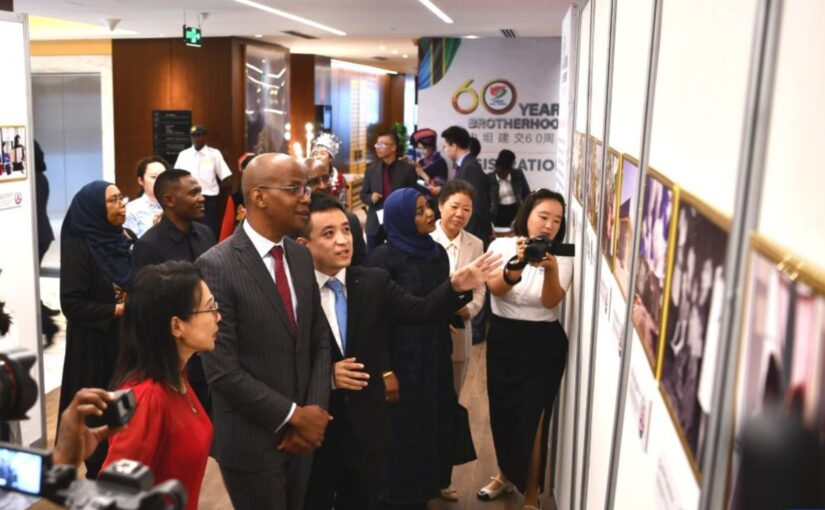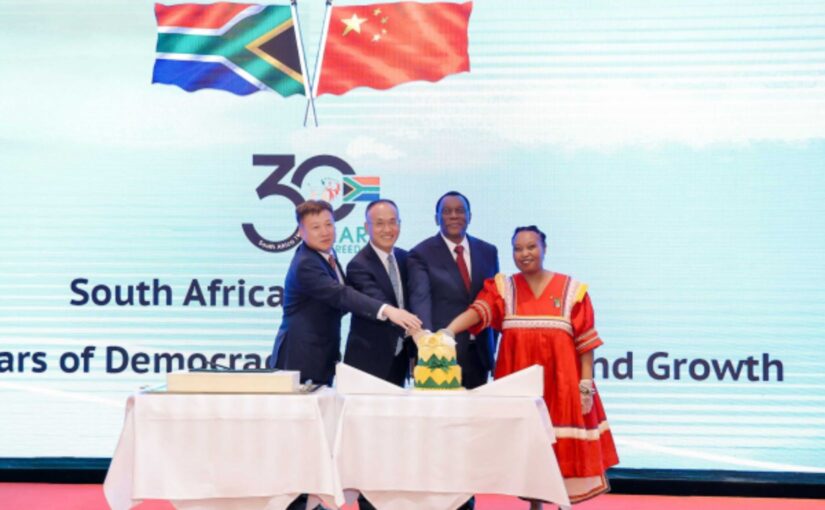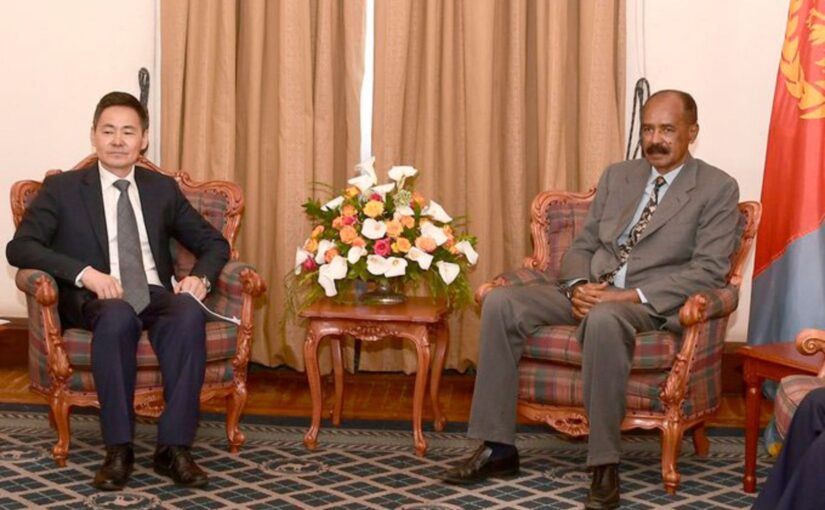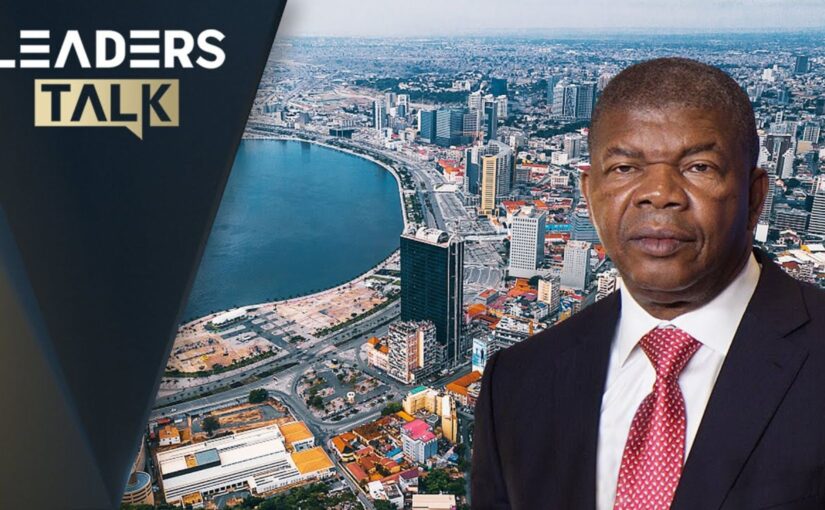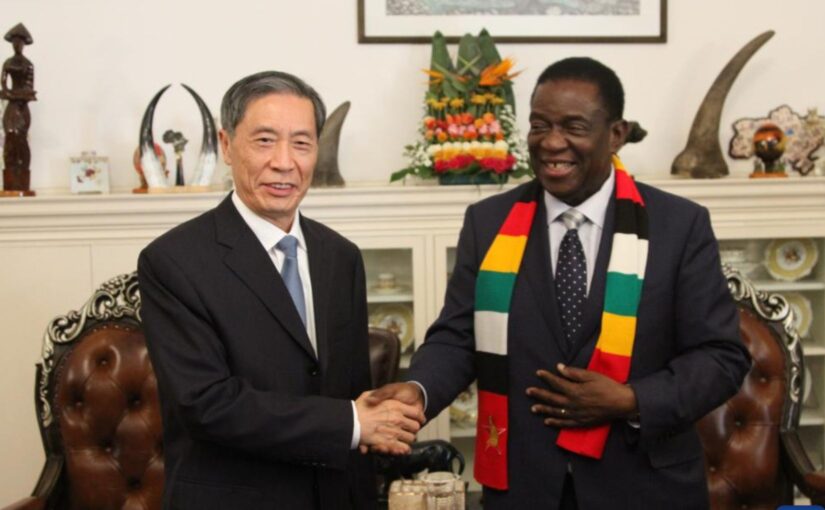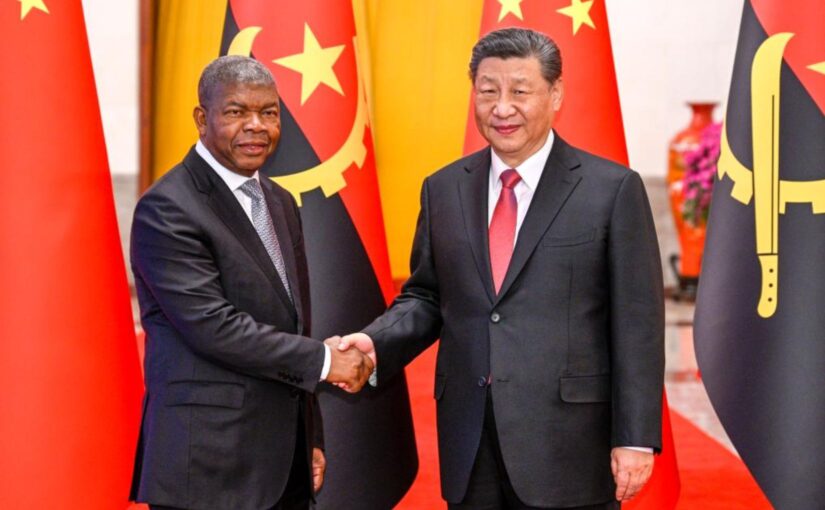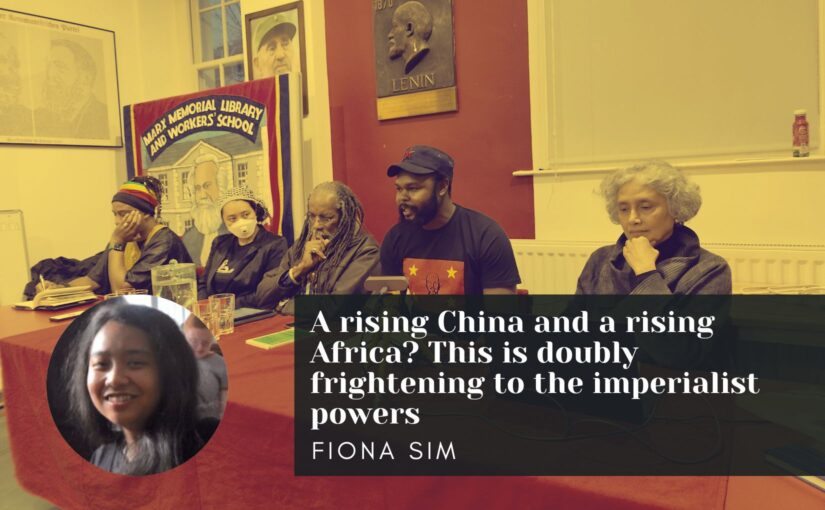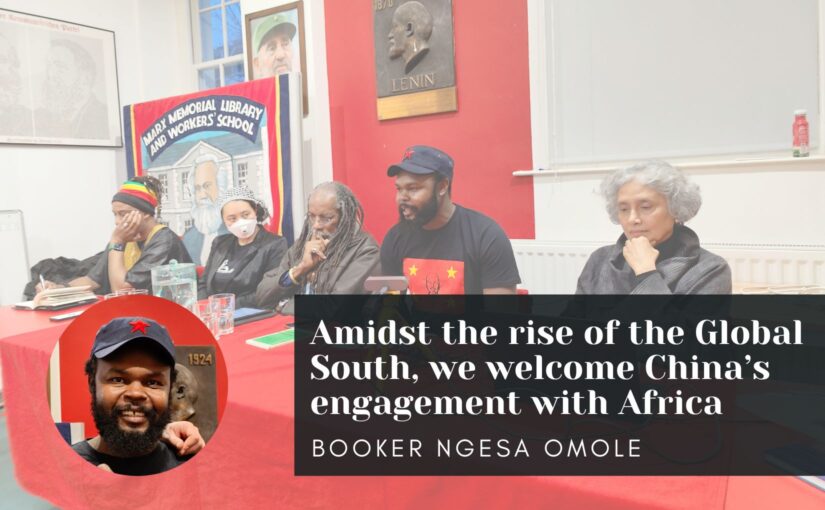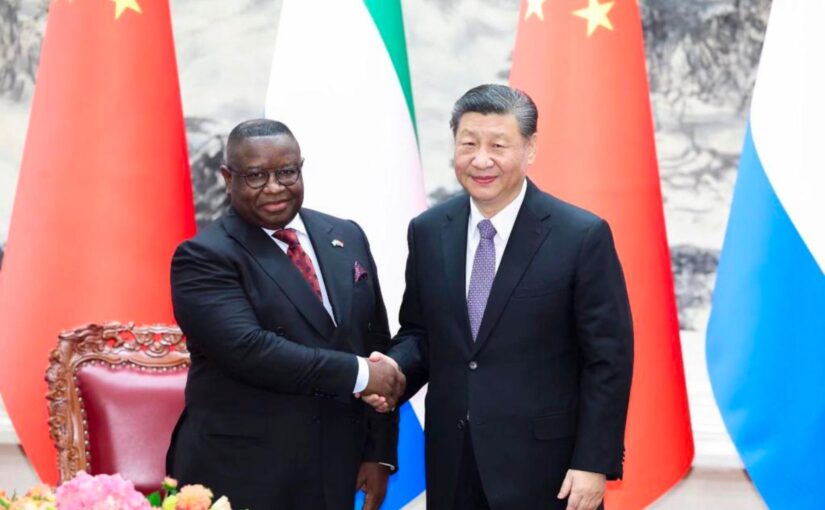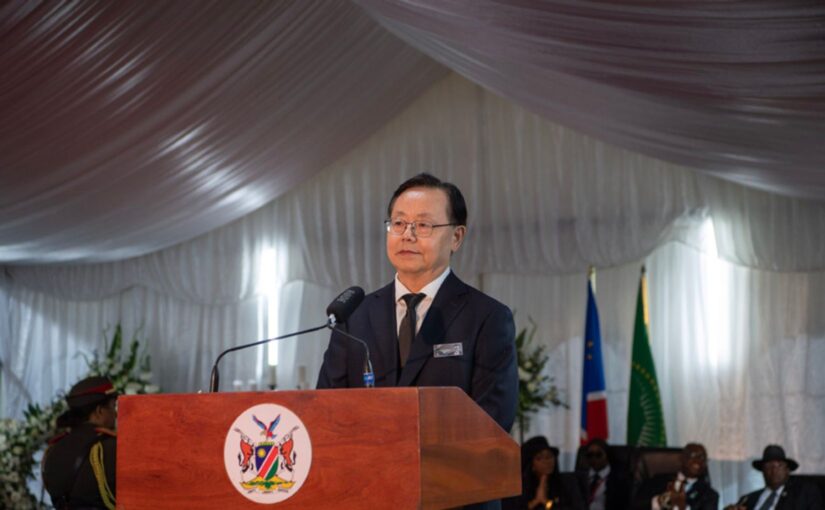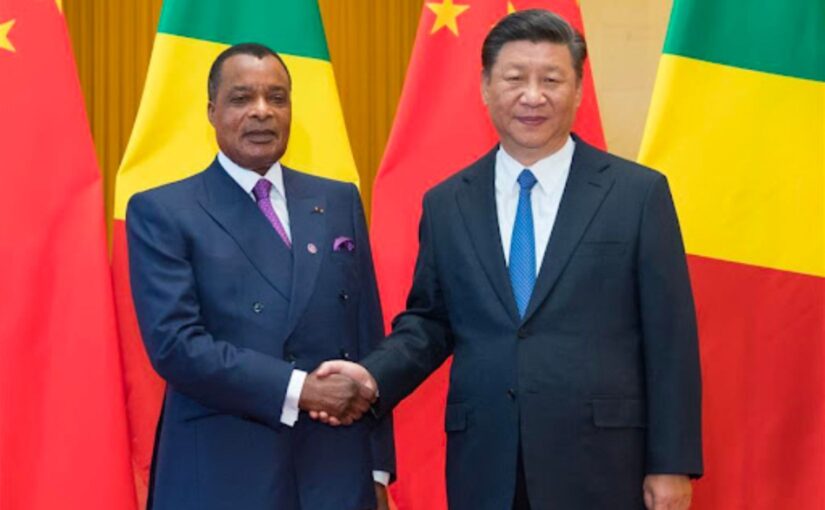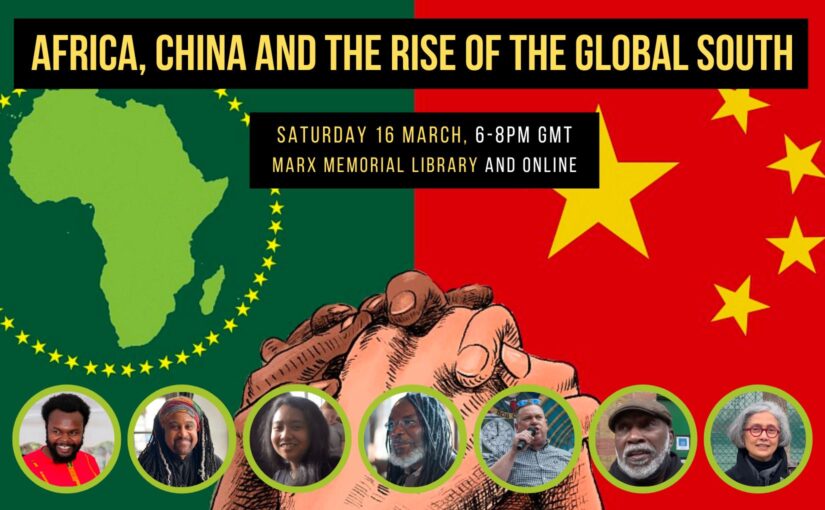President of Equatorial Guinea Teodoro Obiang Nguema Mbasogo paid a state visit to China from May 26-31 at the invitation of his Chinese counterpart Xi Jinping. In office since 1982, Obiang is Africa’s longest serving head of state and this was his 11th visit to China, his most recent previous visit having been to attend the 2018 Beijing Summit of the Forum on China-Africa Cooperation (FOCAC).
Meeting on May 28, the two heads of state announced that they had elevated their relations to a comprehensive strategic partnership of cooperation.
Xi said that China and Equatorial Guinea are good friends and partners and their relations feature a high level of political mutual trust. Since they established diplomatic ties more than half a century ago, the two sides have been helping each other through thick and thin, and firmly supporting each other on issues involving each other’s core interests and major concerns.
Under the new circumstances, consolidating and developing China-Equatorial Guinea relations conforms to the fundamental interests and common expectations of the two countries and peoples. China firmly supports Equatorial Guinea in safeguarding national sovereignty and independence, opposing foreign interference, and independently exploring its own development path.
China is also ready to take the opportunity of elevating bilateral ties to further deepen friendly exchanges with Equatorial Guinea, and exchange experience in reform, development and poverty alleviation, so as to inject lasting impetus into the two countries’ traditional friendship.
And China is willing to share development experience in the fields of agriculture and rural affairs with Equatorial Guinea, continue conducting agricultural technical assistance projects, give full play to the role of Chinese medical teams and the China-Equatorial Guinea Friendship Hospital, and deepen medical care, education, exchanges and cooperation in cultural and other fields, to pass on the traditional friendship between the two countries from generation to generation and better benefit the two peoples.
Emphasising that the world today is intertwined with turmoil, the changes unseen in a century are accelerating, and human society is facing unprecedented challenges, Xi said that developing countries need to strengthen solidarity and cooperation more than ever.
China is willing to work with Equatorial Guinea and other developing countries to carry forward the spirit of the Five Principles of Peaceful Coexistence, strengthen coordination and cooperation in international affairs, and safeguard the common interests of developing countries and international equity and justice, to build a community with a shared future for humanity.
Obiang said that China is a great Eastern country, a good brother and reliable strategic partner of Equatorial Guinea. Since the two countries established diplomatic relations 54 years ago, their bilateral relations have always maintained a friendly development and are currently at the best period in history. The cooperation between China and Equatorial Guinea has always been based on equality and mutual respect and is never imposed on others.
Obiang mentioned that Chinese medical teams in Africa, the China-Equatorial Guinea Friendship Hospital and other important projects have benefited the local people and become a symbol of friendship between Africa and China.
The next day, President Obiang met with Chinese Premier Li Qiang.
Li said that China is willing to strengthen strategic alignment with Equatorial Guinea, work on existing cooperation projects in infrastructure construction and other areas, and expand cooperation in such sectors as marine economy, green economy, and agricultural development.
Both sides should work together to uphold international fairness and justice, and steadfastly safeguard the common interests of the Global South, he added.
Coinciding with President Obiang’s visit, which also took him to Shandong Province, the Xinhua News Agency released a number of stories highlighting the close and long-standing friendship between the two countries.
It reported that during their talks, President Xi expressed appreciation for the kindness the Equatorial Guinea people have shown to the Chinese.
“We will always remember your kindness to the people in the Wenchuan earthquake disaster area and your donation to the construction of Hope Primary School in Jinping County, Yunnan Province,” Xi said.
“Such mutual support between the two countries is a vivid illustration of the sincere friendship and joint development between China and African countries.”
In April 2015, President Obiang announced during his visit to China that Equatorial Guinea would donate a school in Jinping County in China’s southwestern Yunnan Province as a gesture of goodwill and solidarity with the Chinese people.
“The children found themselves in spacious and bright classrooms within a five-story building, and the once muddy hillside was transformed into a well-built playground,” said Ran Hongyan, the school’s principal.
Ran added that the school, which now accommodates over 2,000 students from 16 different ethnic groups, has a special exhibition room to display the children’s photographs, crafts and paintings regarding the friendship between the two countries.
Likewise, in January 2016, the Confucius Institute was established at the National University of Equatorial Guinea, providing young people with more opportunities to learn about Chinese culture.
“When I was a child, Chinese people came to our village to teach farming techniques,” said Jose Antonio Nguema, a 21-year-old student. “They were very friendly and taught me to say ‘hello’ and ‘goodbye’ in Chinese.”
Since then, a “seed of friendship was sown in my heart,” Nguema said. Upon entering university, he was delighted to find a Confucius Institute on campus and eagerly enrolled in Chinese classes. “I have travelled to China twice through the ‘Chinese Bridge’ program. To me, China represents the future.”
Xinhua commented: “Looking back over more than half a century since the establishment of diplomatic relations, China and Equatorial Guinea have always treated each other as equals, respected each other and supported each other, creating a model of South-South cooperation. Looking ahead, China and Equatorial Guinea will join forces with other African countries to contribute even more to building a high-level China-Africa community with a shared future.
It quoted President Obiang as follows: “I appreciate President Xi Jinping’s initiative to help African countries. I believe it is the most effective way for Africa to overcome all the difficulties it faces today.”
In a recent interview with Xinhua, Alejandro Micha Nsue, President of the National Office of Planning and Project Monitoring of Equatorial Guinea, recalled that Chinese companies arrived in his country during his childhood to construct the Nkue-Mongomo road.
“Today, if we talk about the development of transportation infrastructure, including roads, ports, and airports, Chinese companies have been deeply involved,” he said.
Over the past half a century since China and Equatorial Guinea established diplomatic ties in 1970, Chinese enterprises have constructed hydroelectric power stations, airports, roads, and housing projects, serving as the foundation for the country’s development and progress.
Nsue praised such cooperation projects as the new terminal at Malabo International Airport and the new national university campus. “Equatorial Guinea’s characteristics are being shaped through its cooperation with China,” he said.
In Nsue’s view, the cooperation between China and Equatorial Guinea is sincere.
“The countries that colonised Africa exploited and plundered it, taking away all its resources and leaving the countries in ruins. China’s cooperation is different.”
The following articles were originally published by the Xinhua News Agency.
Chinese, Equatorial Guinean presidents hold talks, elevate ties
BEIJING, May 28 (Xinhua) — China and Equatorial Guinea on Tuesday elevated their relations to a comprehensive strategic partnership of cooperation.
This was announced by Chinese President Xi Jinping and Teodoro Obiang Nguema Mbasogo, president of the Republic of Equatorial Guinea, during their talks in Beijing.
Xi said China and Equatorial Guinea are good friends and partners, and their relations feature a high level of political mutual trust.
Since they established diplomatic ties more than half a century ago, the two sides have been helping each other through thick and thin, and firmly supporting each other on issues involving each other’s core interests and major concerns, he said.
Under the new circumstances, consolidating and developing China-Equatorial Guinea relations conforms to the fundamental interests and common expectations of the two countries and peoples, Xi said.
China firmly supports Equatorial Guinea in safeguarding national sovereignty and independence, opposing foreign interference, and independently exploring its own development path, he said.
China is ready to take the opportunity of elevating bilateral ties to further deepen friendly exchanges with Equatorial Guinea, and exchange experience in reform, development and poverty alleviation to inject lasting impetus into the two countries’ traditional friendship, Xi said.
Xi pointed out that China supports Equatorial Guinea’s economic and social development, supports the country’s efforts to promote economic diversification and industrialization, and is willing to closely synergize the Forum on China-Africa Cooperation (FOCAC) achievements and the Belt and Road Initiative with “Equatorial Guinea Agenda 2035” to improve the quality and performance of cooperation in various fields.
China encourages capable Chinese enterprises to invest in Equatorial Guinea, and is willing to share development experience in the fields of agriculture and rural affairs with Equatorial Guinea, continue conducting agricultural technical assistance projects, give full play to the role of Chinese medical teams and China-Equatorial Guinea Friendship Hospital, and deepen medical care, education, exchanges and cooperation in cultural and other fields, to pass on the traditional friendship between the two countries from generation to generation and better benefit the two peoples, Xi said.
Continue reading China, Equatorial Guinea establish comprehensive strategic partnership of cooperation